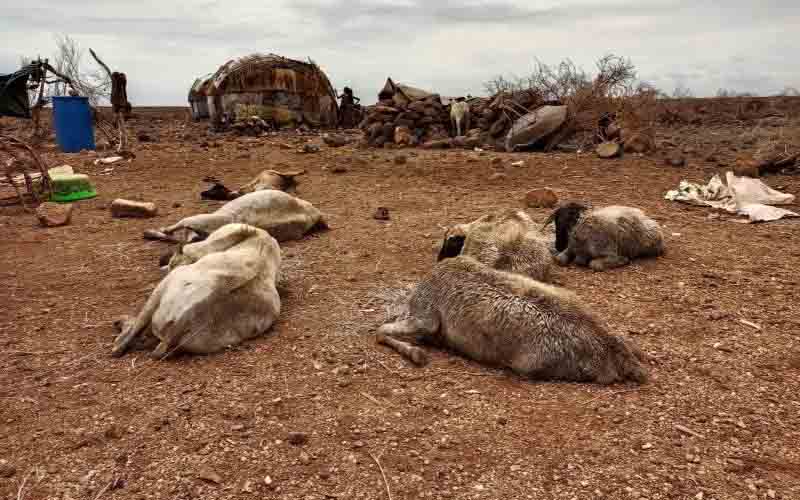Dead animals due to drought in North Horr, Marsabit [Courtesy]
×
The Standard e-Paper
Kenya’s Boldest Voice

Acute water shortage in Marsabit town will be a thing of the past once a Sh2 billion World Bank-funded dam is completed in the next three months.
The dam at Bakuli, on the foothills of Mt Marsabit, has so far reached the fourth phase and will produce 750 cubic litres of water per day.